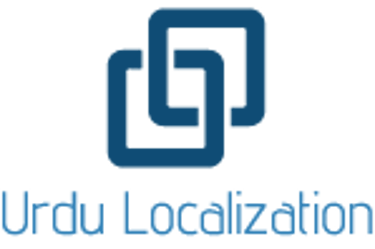
Urdu Localization for E-Government Platforms: Building Citizen Trust
2 min read

Governments worldwide are digitizing their services, from tax filing to public healthcare registrations. But for Urdu-speaking citizens, accessibility depends on more than just online availability. Without professional Urdu translation and localization, e-government platforms risk alienating large segments of the population. Trust in governance begins when people can engage with services in their own language.
Why Urdu Matters in Digital Governance
Pakistan alone has millions of Urdu speakers, and across South Asia and diaspora communities, the language is a lifeline for daily interactions. When government portals are only in English, many citizens feel excluded or unable to access essential services. Urdu localization services ensure inclusivity, giving citizens equal opportunities to interact confidently with digital platforms.
Improving User Experience for Citizens
E-government services often involve complex steps such as filling forms, submitting documents, or understanding legal terms. A lack of Urdu translation can lead to misinterpretation, delays, or complete disengagement. With professional Urdu document translation and proofreading, governments can provide citizens with accurate and easy-to-understand instructions, increasing compliance and satisfaction.
Designing for Right-to-Left Interfaces
Government websites and apps must adapt to Urdu’s right-to-left (RTL) script. Without proper localization, menus and forms may appear misaligned, creating confusion for users. By designing platforms that respect RTL structures, governments not only improve usability but also signal respect for linguistic identity.
Building Trust Through Transparency
Citizens are more likely to trust a platform when it communicates clearly in their native language. For example, tax portals localized into Urdu allow people to understand deductions, filing requirements, and payment instructions without confusion. This transparency reduces frustration and builds confidence in government systems.
Confidentiality in Government Services
Many e-government platforms deal with sensitive data such as personal identification numbers, financial records, and healthcare information. Confidential Urdu translation services guarantee that this information is handled securely. Professional translators working under strict confidentiality protocols ensure that trust is never compromised.
Supporting Limited English-Speaking Citizens
Large portions of Urdu-speaking populations, particularly in rural areas, have limited English proficiency. Without localization, these citizens face exclusion from crucial services like online voting registration, pension systems, or healthcare portals. Urdu translation and localization bridge this gap, enabling equal participation in governance.
The Role of Proofreading and Editing
Accuracy in government communication is non-negotiable. A minor error in a translated form can create legal complications or invalidate a citizen’s submission. Urdu proofreading and editing services ensure that all documents, forms, and guidelines are consistent, accurate, and aligned with official terminology.
Voice-Over and Subtitles for Digital Campaigns
Governments often launch awareness campaigns through videos or tutorials to educate citizens on how to use e-services. Adding Urdu voice-over and subtitling makes this content more engaging and accessible. For initiatives like health registration drives or tax education, this approach can dramatically increase participation rates.
Human Expertise Over Machine Translation
Relying on machine translation for government services can be risky. Automated tools often misinterpret legal or technical language, leading to confusion or mistrust. Human Urdu translators, familiar with governance terminology, ensure communication is precise and culturally appropriate. This human expertise strengthens both usability and credibility.
Urdu localization in e-government platforms is more than a convenience — it is a matter of inclusivity, trust, and equal access. By investing in professional Urdu translation services, governments empower citizens to engage fully with digital services, fostering transparency and stronger civic participation. For millions of Urdu speakers, language accessibility is the foundation of trust in governance.
